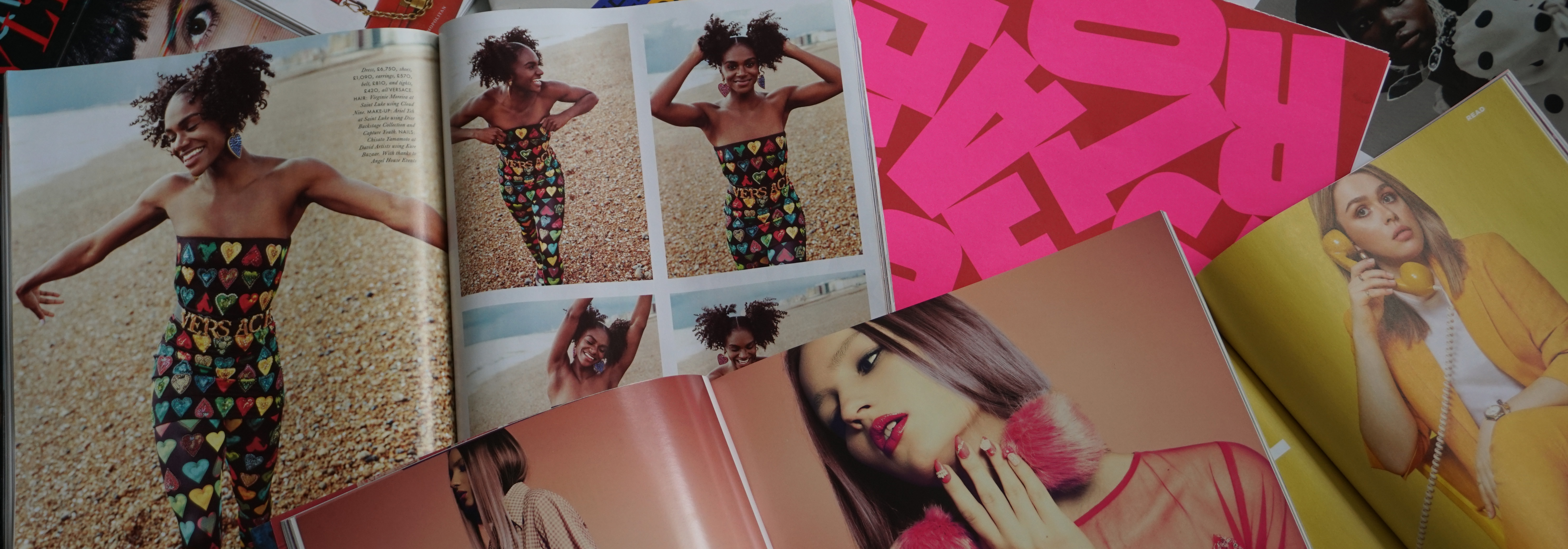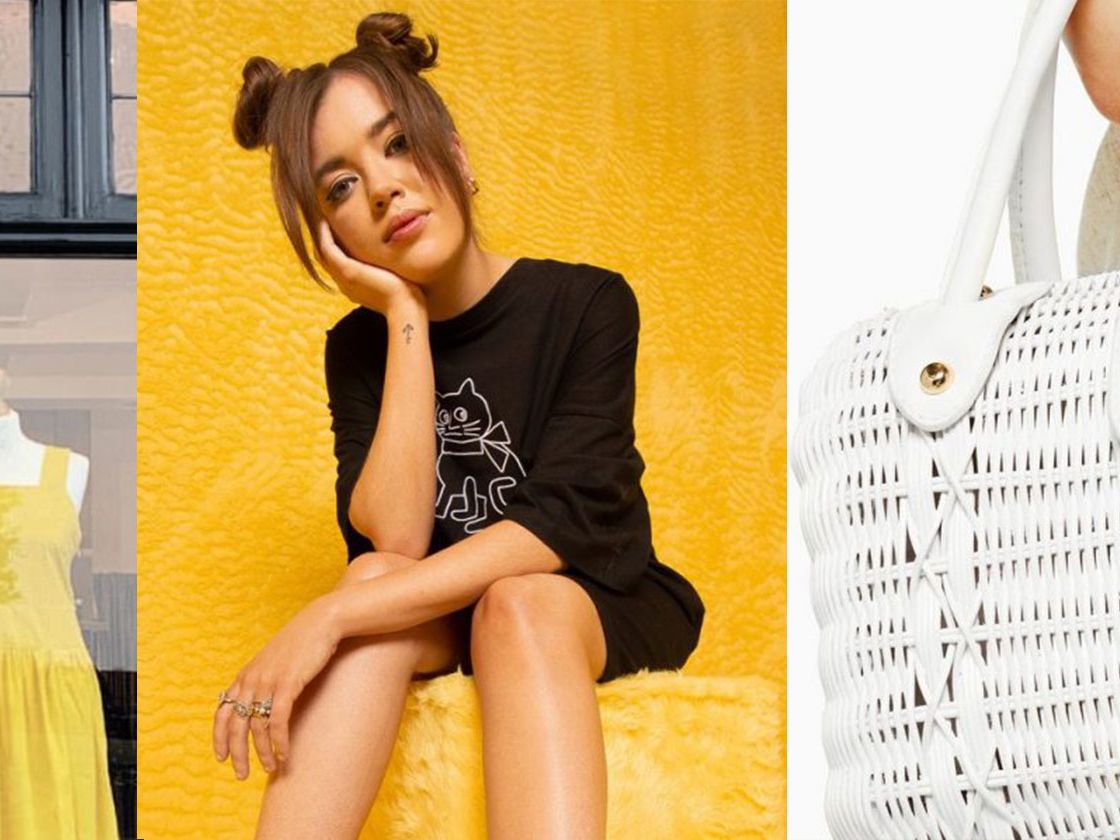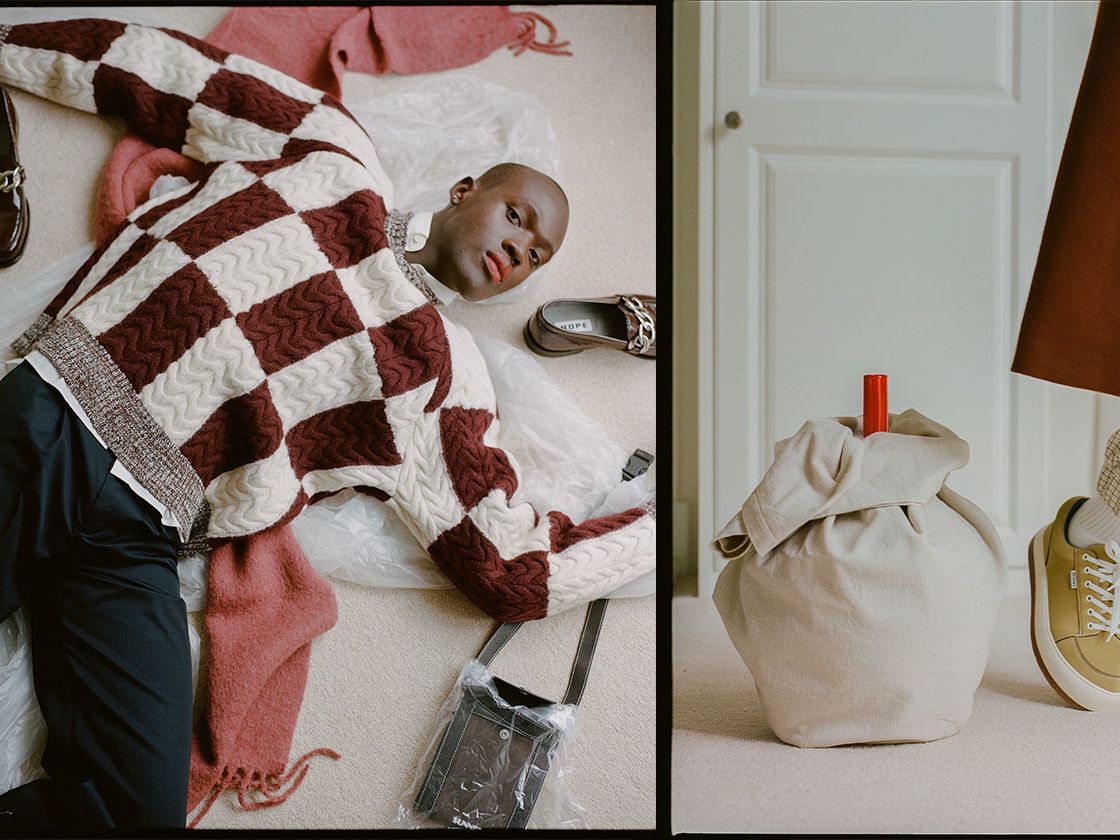LCF alumna Melanie Inkoom Larsen studied BA (Hons) Fashion Journalism and then continued her studies with the MSc Applied Psychology to Fashion. She recently came back to LCF to talk to current students about her research on racial diversity in the fashion industry, explaining why this is such a crucial topic that still needs further discussion. We caught up with her after her presentation at High Holborn to find out more about her steps after graduating from LCF in 2018 and how future talent can fight for a more diverse and inclusive fashion industry.
Hi Melanie! How does it feel coming back to LCF as an alumna?
It feels great! It’s almost like I never left. I always feel so welcomed whenever I come back here.
You’ve given a fascinating lecture on racial diversity in the fashion industry. Why did you decide to focus your research on this area?
Given that I am Ghanaian and I grew up in a Northern European society where I was in the minority, I’ve always found the concept of diversity, or rather the lack of it, quite fascinating. I’ve always wanted to understand the psychological implications being a minority can have on an individual — for example, looking at how it can mentally impact you if you aren’t accurately represented in the media.
What are the key takeaways that you would like students to remember from your lecture?
Diversity is crucial, especially in the fashion industry, considering the roles that fashion media and advertising play in our contemporary society.
A great example is the ‘thin ideal’ and how that impacts so many young girls and women on a psychological level. We tend to forget that other aspects of diversity, such as race or disabilities, can also have this psychological impact on the self. Research has also shown that not seeing anyone who looks like you in the media can impact the way you perceive yourself, the society you live in and your reality. This is a theory that I find particularly interesting and fascinating on so many levels.

Can you think about any fashion brands moving in the right direction when it comes to diversity within marketing and advertising?
Yes, to name a few: Dion Lee, Marc Jacobs, Tom Ford and Louis Vuitton. It’s not just about the concept of ‘tokenism’ as I call it, where high-end brands include one or two black models. These brands specifically are really good at portraying the society we live in, especially within their advertising and marketing campaigns.
What about fashion media, who’s leading the conversation?
Thinking of racially diverse cover models and advertising pages, I’d have to say British Vogue has been doing well and CR Fashion Book too!
You’ve combined your knowledge of media, fashion and psychology for your research. When it comes to diversity, do you think consumers are aware of how much each area affects each other? How would you explain the connection between those 3?
Unfortunately, I don’t think consumers are consciously aware of it enough. However, previous research has been able to show how much these different aspects influence each other and how it impacts the viewer. On a subconscious level though, if you as a consumer never see anyone like you in fashion advertising and media, it does impact the choices you make with regards to what products you buy or consume and the brands that you call your favourite.
You started your journey at LCF doing the BA Fashion Journalism. Why did you choose to study this course?
I enjoy researching and writing as well as the incurable love I have for fashion. I wanted to know more about the whys and the hows more than just looking at pretty designs – the so-called superficial side of the fashion industry.
I chose this course because I wanted to challenge myself as a writer and also grow my love and knowledge of fashion.
You then decided to join the MSc Applied Psychology in Fashion after finishing your BA. What attracted you about this area?
Curiosity. I’ve always wanted to know why people do what they do. The reason behind it all and to properly understand human behaviour and to make sense of it too.
What was the most valuable lesson you’ve learned during your time at LCF?
You’ve got to push yourself and put yourself out there – the right people will see you and help you on your path. I think one thing LCF lecturers do really well is to help the students get a foot in the industry.
LCF is incredibly lucky to have lecturers who are from the industry and lecturers who are experienced psychologists — many of them have years and years of experience, which is really good for the students.
As a student, you’re not only taught the theoretical aspect but with the help of the lecturer’s first-hand experience, you get so much more added onto it. With that being said, you also really have to put some work in.
What have you been up to since finishing your MSc?
Since graduating, I’ve gotten a job at a market research company, I’ve held a talk at the British Psychological Society at their annual conference in May 2019 and held a lecture here at LCF. It’s all been great fun and invaluable experiences – I didn’t see myself as a public speaker before, however, I’ve always wanted to get my knowledge and research out there and it happened, so that’s been fantastic. It’s only upwards from here really!
You’ve also been recently involved with the Alumni team. Would you encourage other alumni to get involved as well?
I love it! I definitely think other alumni should get involved too! The industry is SMALL so it’s great to have a community that supports you.
For the new waves of talent getting into the fashion industry, what piece of advice would you give to them if they wanted to promote inclusivity and diversity within their practice?
I’d say research, research, research and research! I can’t say it enough. Know your area, understand your audience/client/reader very well and ensure that the ‘silent’ minority voices are heard or seen. Don’t only include different races/disabilities/age groups/sexual orientation to stay ‘safe’ and relevant, but have a reason to do so.
Always remember that diversity doesn’t equal tokenism – so don’t do it out of pity, but because it fits the brand and its audience and because advertising should really portray the society in which we live.
- Connect with Melanie on LinkedIn
- Find out more about BA (Hons) Fashion Journalism and MSc Applied Psychology to Fashion
- Explore LCF undergraduate and postgraduate courses
Alumni can connect with LCF in the following ways:
- Stay in touch
- LCF Alumni Network on LinkedIn
- Contact LCF Alumni: alumni@fashion.arts.ac.uk






